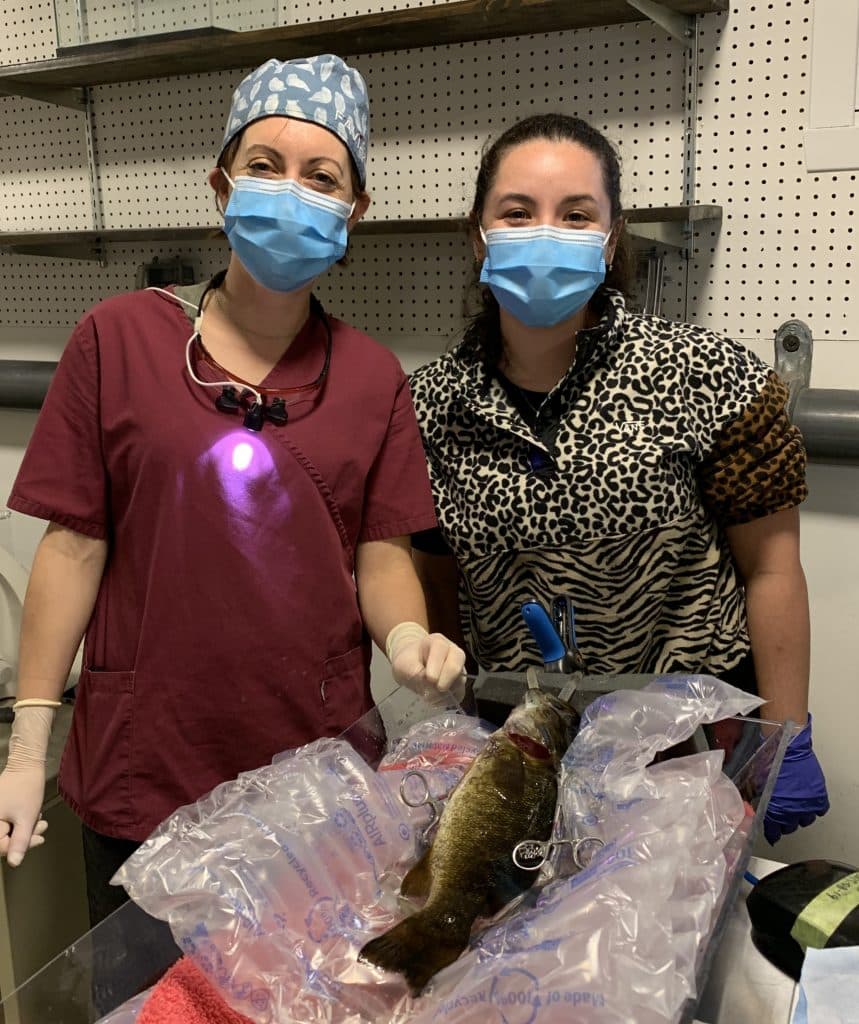Webinar - Why should we be caring for fish in our veterinary practices?
They’re silent, but not simple. Fish are the most diverse and numerous vertebrates on the planet, representing over half of all vertebrate species. They are increasingly present in our lives — as companion animals, research models, and ambassadors of aquatic biodiversity in public aquaria.
Yet, despite their biological and ecological importance, fish remain among the most overlooked patients in veterinary care and training. This webinar invites veterinarians to look below the surface — to understand their needs, their suffering, and the science that allows us to care for them better.
From ornamental species in homes to endangered wildlife, veterinarians play a key role in ensuring fish health and welfare. Join us to explore how fish medicine connects clinical practice and conservation — and why this field matters for the future of veterinary medicine.
Pet fish owners should seek advice from veterinarians rather than pet store staff, and veterinarians should not shy away from this challenge. Pet store employees often lack formal veterinary education, relying instead on sales training rather than animal care expertise. They prioritize sales over animal welfare
Veterinarians are the most prepared professionals to address fish health issues.
Why should we be caring for fish in our veterinary practices?
- How common fish are in research laboratories, as companion pets, in public Aquaria
- What challenges fish face in the wild (endangered species and main causes)
- How to take care of them in veterinary practice with a few practical examples
- How what we learn about fish in aquaria can have an impact on fish in free-ranging habitats
- How to train about fish medicine (certifications available/specialty diplomas, courses etc.)
- 05/11/2025
- English
- 100% Online
- 2H | 19:00-21:00 (Lisbon time)
- Registration
For more informations, please contact us at +351 969 918 680 or formacao@euvg.pt
This webinar is free of charge, but requires prior registration.
This session is designed for students and veterinarians who want to broaden their impact — from companion fish care to fish conservation:
- Recently graduated veterinarians: gain insight into a growing area of veterinary medicine and learn practical approaches before entering internships or residencies.
- Veterinarians in practice: discover how fish medicine can expand your caseload, align your clinic with evolving ethical and legal standards, and connect your work to aquatic welfare and biodiversity.
- Veterinary students: develop an early understanding of aquatic animal medicine and welfare. This webinar offers a first step into a fascinating and rapidly growing field of veterinary practice.
Fish matter. It’s time we give them the attention they deserve.
Go Further
Take your expertise into the exotic realm of companion animals. Our Postgraduate Programme “New Companion Animals” gives you cutting-edge online training in the clinical management of small mammals, birds, reptiles, amphibians, invertebrates and ornamental fish. Join a global faculty, deepen your skills, and boost your professional differentiation.
Lecturers

Claire Grosset
Graduated from Alfort veterinary School in France in 2008. After an internship in zoological medicine in Saint-Hyacinthe, Canada, she completed an ACZM-accredited residency at the University of California, Davis in 2014 and became a diplomate of the American College of Zoological Medicine. Since then, she works as a veterinarian at the Aquarium du Québec, Canada and is currently an Associate Professor in Zoological Medicine at the Université de Montréal. She also holds a research Discovery grant of the NSERC and her current research projects pertain to the topic of analgesia in fish.
Giulia Vieira
Graduated with a bachelor's degree in Oceanography from the Universidade do Estado do Rio de Janeiro in Brazil in 2023. In 2025, she started a Master's in Veterinary Science at the Université de Montréal in Saint-Hyacinthe, Canada, under the supervision of Dr. Grosset. Since then, she has been participating in projects concerning aquatic animal health and medicine.

